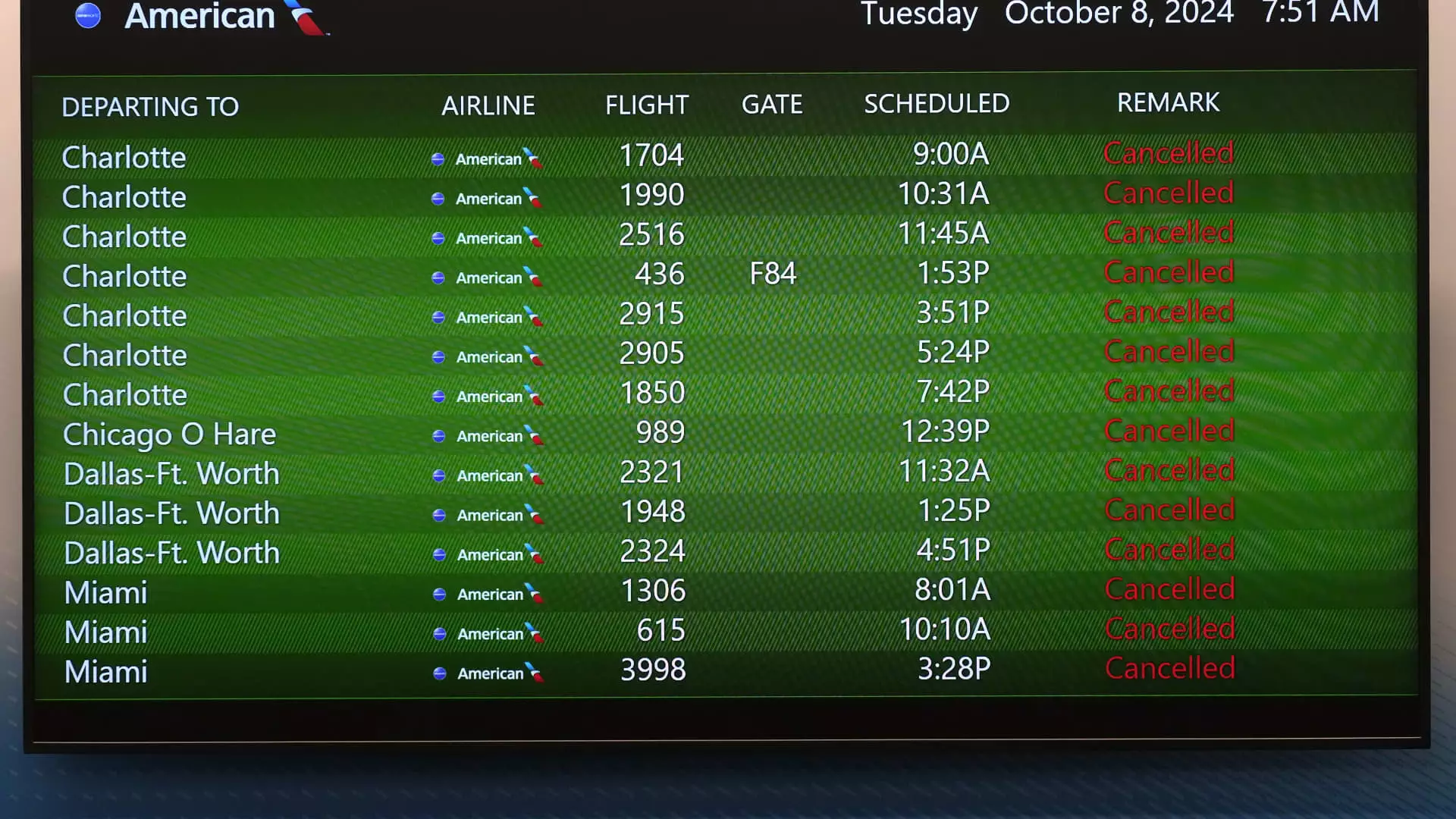Hurricane Milton, classified as a formidable Category 4 storm, has cast a looming shadow over Florida’s west coast with sustained winds reaching 145 miles per hour. As this tempest approaches, a sense of urgency prevails; residents and authorities alike are mobilizing to mitigate the storm’s potential wrath. The National Oceanic and Atmospheric Administration (NOAA) has issued alerts, prompting over 50 counties in Florida to declare a state of emergency. Such measures are essential to ensure public safety and prepare for the impending onslaught that is expected to peak with Milton’s landfall on Wednesday.
In the face of Hurricane Milton, major airlines have significantly altered their schedules. Tampa International Airport halted operations starting Tuesday at 9 a.m. ET, advising that flights would resume only when conditions are deemed safe. Moreover, Orlando International Airport announced a closure ahead of the storm, setting its operational halt for 8 a.m. on Wednesday. The data reveals a staggering scale of cancellations—over 750 flights out of Orlando have been scrapped. Southwest Airlines, a key player in the region, alone pulled over 400 flights from its Wednesday timetable. Such widespread disruptions reflect an urgent response to ensure the safety of passengers and crew amid the volatile weather.
The looming hurricane has also forced theme parks and resorts to invoke emergency protocols. Disney has made the decision to suspend operations at several of its facilities, including Fort Wilderness Resort and Campground, starting Wednesday morning. This precautionary measure underscores the significant impact of natural disasters on the tourism sector, which is a lifeline for the state’s economy.
Universal Orlando Resort maintains, for now, that its operations continue normally, yet it encourages vigilance among visitors, highlighting the uncertainty associated with weather-related events. In contrast, Busch Gardens Tampa has preemptively closed its gates for a three-day period, demonstrating a cautious approach to visitor safety. Other attractions, such as SeaWorld Orlando, remain open but are closely monitoring the hurricane’s trajectory.
As if air travel and amusement parks weren’t enough, cruise lines have also found themselves navigating the turbulent waters of Hurricane Milton’s potential effects. Carnival Cruise Line has alerted patrons about expected closures of ports in Jacksonville, Tampa, and Miami, instituting alternative routes to bypass hazardous conditions. This proactive adaptation illustrates the broader approach taken by various sectors to prioritize safety during such unpredictable situations.
Hurricane Milton’s impending arrival exemplifies how natural disasters trigger widespread operational changes across multiple industries. As airlines cancel flights, theme parks close attractions, and cruise lines redirect voyages, the importance of emergency preparedness and adaptability becomes clearer. Florida is facing a crossroads where safety takes precedence over convenience, demonstrating the formidable power of nature and the resilience required to combat it. The collective efforts to mitigate risks highlight the determination of Florida’s communities to survive and bounce back stronger in the wake of adversity.


Leave a Reply